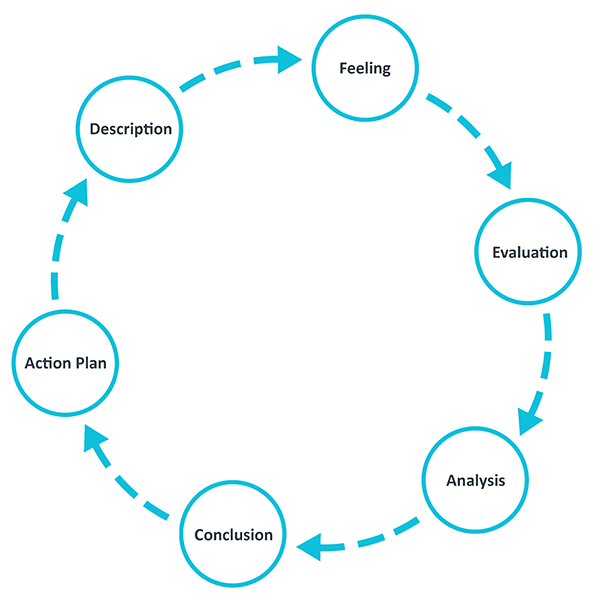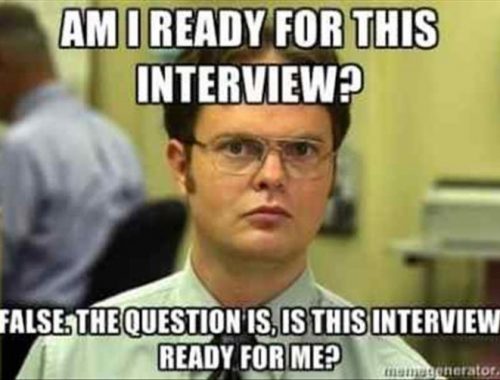
Challenge Accepted Sir!
When I chose to take up my work placement as a teaching assistant, I thought, “How bad could it be? They’re children!” Little did I know how wrong I was. There wasn’t a doubt in my mind that teaching was one of the hardest jobs in the world, but as a teaching assistant, I thought I would have escaped the challenges and tribunals of being a teacher, looking back at the experience, I find myself laughing at my own naivety. In order to recall on this experience, I will be using Gibbs’ reflective model to evaluate these scenarios and understand how I could have better dealt with these situations.

Throughout the weeks, I was placed into a variety of classes so that I could experience teaching environments of all ages and learning abilities. Whilst attending a Year 10 class, the teacher asked to speak to me privately outside the classroom. He then described to me a student who was a “troublemaker”, who “can’t stay focused” in class, and often “messed about” with other students. The teacher asked me to work closely with him to ensure that he completed his work and that he didn’t disrupt the class, as he usually had done. The student entered the classroom and was directed to sit beside me, I smiled at him and quickly introduced myself, to which he replied, “I don’t need extra help, I’m not a retard.” To which, I politely and calmly replied, “Okay, well, you’re not supposed to say that as it’s offensive. And I’m here, simply to ensure you get all your work done, as I heard you are easily distracted by the other boys in class.” He rolled his eyes and said, “It’s just a bit of craic”, I seized this as my opportunity to explain the importance of English in Year 10, as it will determine what level of English class he will be placed into for GCSE’S. He was quick on the response though, replying with “I don’t need to do well in English, I want to be a brick-layer.” For a moment, I wasn’t sure what to say, the student smiled, thinking he’d won. After a moment’s thought, I replied, “I’m glad you know what you want to do, but you still need to pass English GCSE to do brick-laying work, you’ll have a lot of forms to read and fill out and you need to be able to spell correctly.” To my surprise, the student smiled again, and said “Oh yeah, I suppose I do.” From that moment onwards, he was attentive to his work, and spent the rest of the class quietly completing his work, only speaking to ask a question.
The teacher asked me to work closely with him to ensure that he completed his work and that he didn’t disrupt the class, as he usually had done. The student entered the classroom and was directed to sit beside me, I smiled at him and quickly introduced myself, to which he replied, “I don’t need extra help, I’m not a retard.” To which, I politely and calmly replied, “Okay, well, you’re not supposed to say that as it’s offensive. And I’m here, simply to ensure you get all your work done, as I heard you are easily distracted by the other boys in class.” He rolled his eyes and said, “It’s just a bit of craic”, I seized this as my opportunity to explain the importance of English in Year 10, as it will determine what level of English class he will be placed into for GCSE’S. He was quick on the response though, replying with “I don’t need to do well in English, I want to be a brick-layer.” For a moment, I wasn’t sure what to say, the student smiled, thinking he’d won. After a moment’s thought, I replied, “I’m glad you know what you want to do, but you still need to pass English GCSE to do brick-laying work, you’ll have a lot of forms to read and fill out and you need to be able to spell correctly.” To my surprise, the student smiled again, and said “Oh yeah, I suppose I do.” From that moment onwards, he was attentive to his work, and spent the rest of the class quietly completing his work, only speaking to ask a question.
Every challenge has a mindset required to overcome it.
Billy Alsbrooks
How did I feel?
At first, I felt stressed. When the teacher told me I would be working with a “badly behaved student”, I didn’t know what to think. As I entered the classroom, I began to wonder, what if I can’t control the situation, what if he acts out and I can’t regain authority, will this teacher ever let me come back to this class? These were the thoughts running through my mind, when the student in question said he wasn’t a ‘retard’, I was stunned. I tried to think of a way to respond without sounding belittling or judgemental, rather I wanted to remain professional. As explored by Waring and Evans, “How teachers perceive professionalism matters in the way they enact professionalism in the construction of their professional identity, and in their teaching which impacts on students’ attainment.”[1] I wanted the student to feel at ease, but I also wanted to ensure he knew that kind of language wasn’t acceptable. After our interaction, I felt like I had handled the situation professionally and effectively, as he was able to get all of his work done without disrupting the class.
Evaluation?
Although I would have much rather had spent the class with a less difficult student, I am glad that I faced the challenge. Throughout any work environment, if there was any conflict, or difficulty with either staff or customers/clients, I tried to avoid it or leave the situations for a more experienced member to deal with. Whereas in this scenario, I didn’t have any choice, I was given my challenge and had to deal with it in the best way possible, otherwise I may not have been invited back to the class. I wanted to “enhance cognitive flexibility” and provide “meaningful modelling, and coregulation/to assist students to learn how and why to differentiate their own strategies as they engage with different learning tasks”[2] By removing the obstacles and distractions around him, and showing him the importance of English, I felt I was able to do this successfully. Overall, I feel like I handled the situation professionally and effectively, which was reflected in my feedback from the teacher as well as in the work the student was able to produce.

Analysis?
After an eventful class. I tried to make sense of what happened, I tried to make sense of the student! After reviewing his work, I could see that he was bright and quite capable of entering higher level English as he progresses into GCSE. The students classmates proved to be the main obstacle for him in preventing him from excelling in the class, once I removed the distraction but now enabling him to speak to him, he was able to work efficiently.
To Conclude…..do you still want to be a teacher?
The short answer, is absolutely! This experience challenged me to step out of my comfort zone and into the shoes of a teacher, handling difficult students and situations and completing a successful class. Although I felt panicked by the inappropriate language from the student, knowing I was able to help the class progress uninterrupted, and allowed a student to spend his class time producing work to his potential is an experience I won’t soon forget.
References
[1] Waring, Michael and Evans, Carol, Understanding Pedagogy, Developing a critical approach to teaching and learning (Milton Park, Abingdon, Oxon: Routledge, 2015).
[2]Burnard, Pamela, Hennessy, Sarah, Reflective Practices in Arts Education (The Netherlands: Springer, 2009).
[3]Waring, Michael and Evans, Carol, Understanding Pedagogy, Developing a critical approach to teaching and learning (Milton Park, Abingdon, Oxon: Routledge, 2015).
You May Also Like

Working with a Production House
30 November 2022
Job Interviews: Selling Yourself For A Pay Cheque
24 February 2023
